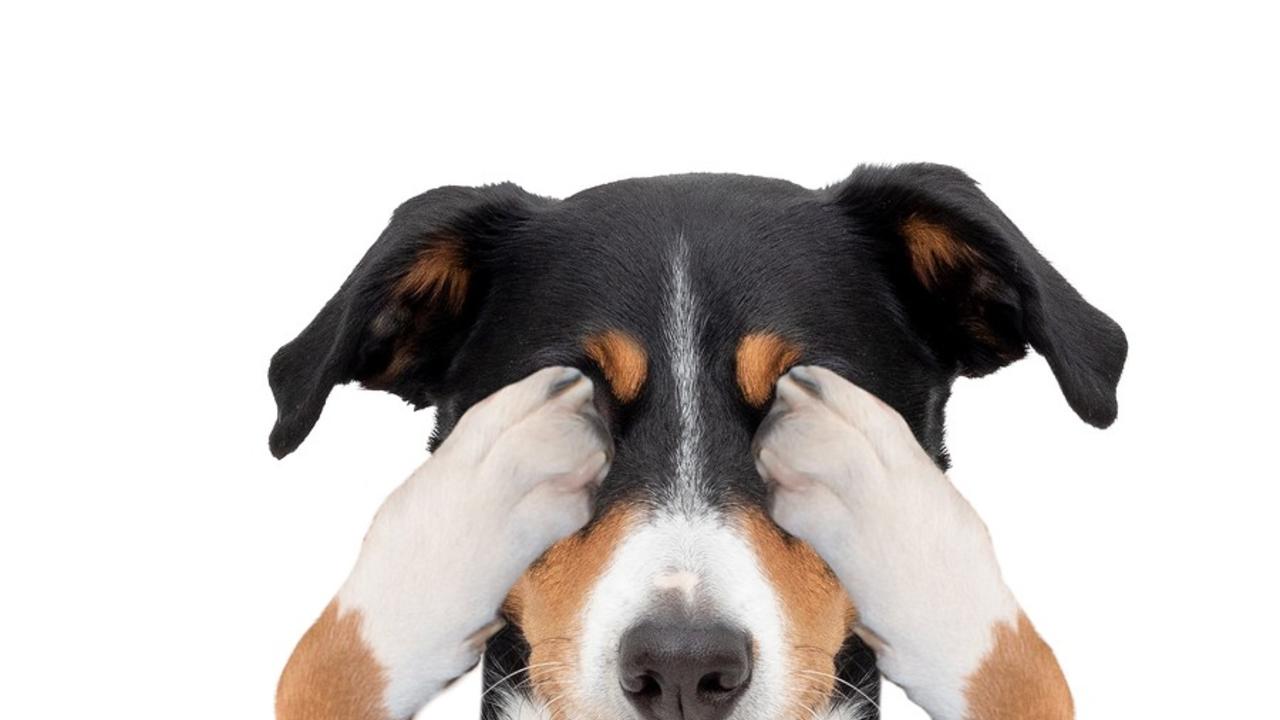Understanding Your Dog's Overwhelm
Nov 20, 2019
Understanding your dog's overwhelm is a tough call. When your dog is overwhelmed, you can restore calm as long as you take a thoughtful and informed approach.
Think for a moment about what overwhelm feels like. When it happens to you, how are you most likely to react? Get angry? Lose your patience? Become hyperactive or shut down and withdraw?
One strategy that often helps people survive their bouts of overwhelm is to just take time out and put it into context. Having a long to-do list, balancing extra demands on your time and energy, or confronting events you can't control can all add up to a momentary meltdown.
Most of us have learned how to cope. We take a breath and "tough it out" because we believe the goal is worth the effort. We remind ourselves "not to sweat the small stuff" and see "the big picture". We have the power to be optimistic about the future even if the present moment is a hot mess. "This too shall pass..."
If only our dogs had the same ability to rationalize their way out of an overwhelming momentary meltdown. But the truth is that dogs need our help. One reason is that dogs don't envision a future that they haven't yet experienced. Another reason is that dogs have a spontaneous emotional reaction to unexpected changes in their surroundings.
Easy-going personalities have a ho-hum or mildly curious reaction. However, a more environmentally sensitive dog may respond with over-arousal, anxiety, or alarm that ultimately leads to overwhelm.
What does an overwhelmed dog look like? A change in behavior or demeanor that's not typical for that individual is an early sign of stress. Pay attention to extremes. Excessive barking, restlessness, whining, running away, nipping, licking, or chewing are extremes that are hard to miss. But some dogs go to the opposite extreme and become uncharacteristically withdrawn, fearful, and worried. They retreat and hide.

Last week's blog post was about filling your dog's emotional bucket. One of the bucket filling strategies was "Reverse the Golden Rule". The reversal is expressed like this: "Do unto others as they would have you do unto them." With that in mind, here are three ideas for keeping your dog calm and relaxed.
Three Tips for Understanding Your Dog's Overwhelm.
With understanding comes empathy, the key to emotional bucket-filling.
One
Consider how your dog wants to be treated right now. Does a punishing attitude soothe fears and relieve stress or does it only make the dog worse? Losing your patience with a stressed dog can excite him further and lead to problem behaviors, even aggression. What would diffuse stress for your dog? What tone or attitude does he need from you to help him calm down?
Two
Manage the environment that's triggering the stress. During a holiday season, comfortable routines are disrupted, the increased activity sometimes verges on frantic, and a dog's familiar home turf is suddenly invaded by new smells, sights, people, and noises. Encourage your dog to investigate and find reassurance by becoming familiar with new things. At the same time, make sure he's protected from anything dangerous. If he's unsure, allow him to retreat to a distance that feels safe. Set the dog up to succeed and invite him to enjoy the normal activities he loves most. A game of fetch? A sniff-walk through the park? A silly hide-and-seek game with the kids? Or maybe the dog just needs a quiet place to decompress.
Three
Redirect, refocus, and reinforce. Science-based dog training rejects the idea that training a dog means fixing or correcting what's wrong with the dog's behavior. We don't teach what not to do. We focus instead on teaching the dog what we want him to do. Scolding an overwhelmed dog to "stop" isn't going to restore an anxious dog's confidence. Just as we would with a distressed toddler, we redirect and refocus the overwhelmed dog toward something valuable and pleasant to him. Model the emotion you want your dog to reflect to you. Instill calmness and soothe stress. A quiet voice and a positive approach go a long way. Reinforce desirable behaviors with lots of positive rewards, which include words, tone of voice, actions, facial expressions (SMILE!), playing, toys, and special treats.
Supporting your dog emotionally when he's overwhelmed may seem complicated. But making the effort to have your dog's back yields some unexpected rewards for you, too! You don't have to do it "perfectly". But when you reach out to your dog, the therapeutic effects go both ways!
Free Guide
If you found this advice helpful, you'll also want to have my new Guide that's filled with dog owner tips for safely navigating holiday stress. You'll refer to this valuable resource often for safety information clear, concise, and all in one place. Download it now for free.
Complete Guide For Fall & Winter Holiday Safety For Dogs

Sensitive Dogs want to be heard, not trained. When you recognize the emotion behind the behavior, the behavior changes.
Learn the exact steps when you download the A-Stack Plus Bundle.
Do you want a free copy today? Click below to get yours!
